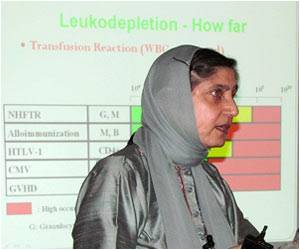After 31 years of ban, a Food and Drug Administration advisory committee is expected to lift the ban on blood donations by gays.

An advisory committee to the Health and Human Services Department recommended replacing this ban with a 12-month deferral period for men who have had sex with men in that time. This means that sexually active gay men would still be prohibited from donating blood, but those who have not engaged in sex with other men in the last one year would be allowed to donate blood. Some experts are of the opinion that the restrictions are outdated, and that sophisticated tests for detecting human immunodeficiency virus (HIV) exist, which can make blood donation by gay men a much safer practice.
Jason Cianciotta, director of public policy at Gay Men's Health Crisis, said, "While the proposed change from a lifetime ban to a 12-month deferral is a step forward, it does not go far enough and would not eliminate the stigma or discrimination associated with the ban on gays. Any deferral based on a sexual orientation label - MSM (men who have sex with men), gay or bisexual - still perpetuates the harmful and unscientific notion that HIV is transmitted because of who you are rather than what you do. We advocate for a system that screens all donors, gay or straight, for high-risk practices that could lead to HIV infection."
However, critics urged the advisory panel to reject any move unless it can be scientifically prove that a revised policy could increase the risk of HIV in the blood supply.
Source-Medindia












